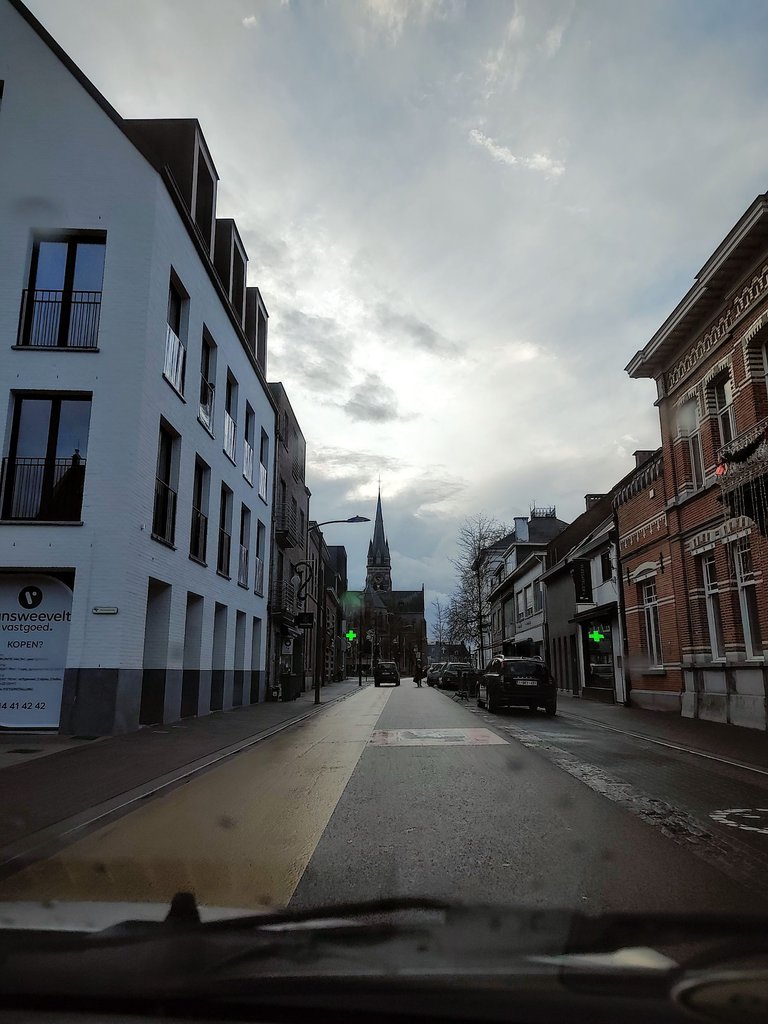
I took this photo with my phone on January 3 in Arendonk, Belgium
Oh well, I'm slowly starting to feel like an LP that's stuck around again. Another blog about high living costs. It is not a pleasant story to read again, but it is certainly not a pleasant story for me to have to write again. For you as a reader, it means a boring story, for me as a writer it means a daily struggle to survive financially. You can decide for yourself what's worse.
A Cold Reality
Let me start by saying that we are no different from many other households in the Netherlands. With salaries out of step with the rising cost of living, we must conserve every cent, especially when it comes to energy.
It is no secret that living costs in the Netherlands are skyrocketing. And we feel that pressure every day. To keep our heads above water financially means that we have to find creative ways, and one of those ways is finding ways to use energy efficiently. Now that is nothing new for us since we moved here 10 years ago, we already knew that central heating on propane gas is an expensive way of heating. As a result, we only use it when we have no other choice. But to avoid having to sit in the cold during the winter months, we burn petroleum in a small stove. Not the most environmentally friendly, no. That's absolutely right. I would also rather act differently. You must also be careful with Petroleum in terms of health, always ventilate well, and ensure good drainage. That can all be arranged. But of course, the environmental problem remains. And with the environmental problem also comes the rising costs for the price of Petroleum in the Netherlands. So what now?
When the winter months were approaching, we made various calculations. What would be the best solution for us to keep some warmth in the house, and therefore have some comfort? Could we heat electrically? Or would it be better to use the propane gas tank? The consumption and space are known ... and many calculations later we ended up with Petroleum as the most economical way of heating our wallets.
Dutch people are frugal
Our approach is economical, but certainly not the most environmentally friendly. We use the propane tank sparingly, mainly for hot water for showering. But we use petroleum to heat our house. This is only in the rooms where we are. This is not environmentally friendly, I know, but it is much friendlier to our wallets. We would also like to eat. Life consists of making choices. And in this case, we choose our wallet. It becomes even a little more unfriendly for the environment. We drive back and forth to Belgium once a month to get the Petroleum. Why? Because petroleum is much cheaper with our Belgian neighbors. And that quickly saves us about 125 euros per month. Now I hear you shouting, "But you have to drive up and down for it, so you lose those costs again." That's right, but petrol is also considerably cheaper in Belgium, so we immediately fill the car's tank there and that also saves us about 15 euros. The trip back and forth to Belgium costs us about 10 euros in gasoline. So we more than earn that back with the savings on petrol and oil, and to top it all off, we also do some shopping at Delhaize where we make the last savings for the day by being able to refill our pantry at home with products. which are sold in the Netherlands for 2.89 euros and on Belgian shelves for 0.89 cents.
It's actually strange when you look at it this way that there can be such a difference in the price. They are both countries in Europe, we are not going to the French-speaking part of Belgium. Arendonk is really just across the border with the Netherlands. Yet it is reality. We cannot choose how high the prices are to live in the Netherlands. But we can choose to get the things that are cheaper in Belgium there. It saves us a lot of money, and it also means an outing together at least once a month, without dogs. Where possible, we also spend some quality time together.
There they are again, farmers' protests
Tomorrow it would be time for us to go to Belgium again. But this may be disrupted by the farmers' protests that have now also broken out in Belgium. And to top it off, Dutch farmers have joined their Belgian colleagues. Several border crossings with the Netherlands are completely blocked, and unfortunately ... also the border crossing that we have to use. You probably know the story, the farmers' protests against several things including rising production costs, low prices for their products, and strict European environmental regulations. I'm sure there are more reasons, but these are pretty much the main reasons I know of.
Understanding Each Other
Let me first say that I understand that farmers believe they have the right to protest. Their survival is threatened, and yes, these are certainly difficult and uncertain times for them. But let me also say that I do not think it is right for farmers to respond in the ways they do now. I don't think this is the solution either. Their actions largely affect people who cannot change anything about their situation. People like us also have to struggle every month to keep our heads above water financially. We too are experiencing problems from rising costs, and we too have to apply emergency measures to survive financially. Many people understand that things are currently uncertain for farmers, but through these actions, the farmers themselves are creating misunderstandings about their problems among many people.
These are difficult times for many people, and that is not limited to farmers alone. It seems like everyone has lost their way and is in a "Fight for Survival" mode. This is accomplished in many ways. But the result is that one group always suffers from another group. I hope for better times but hold my breath...
While somewhere deep down I try to keep hope for an affordable and sustainable future, I now wait to see whether our monthly trip to Belgium will be feasible tomorrow. Let's hope so so that we can also sit warm in February with a stocked pantry and some saved euros in our wallets.





